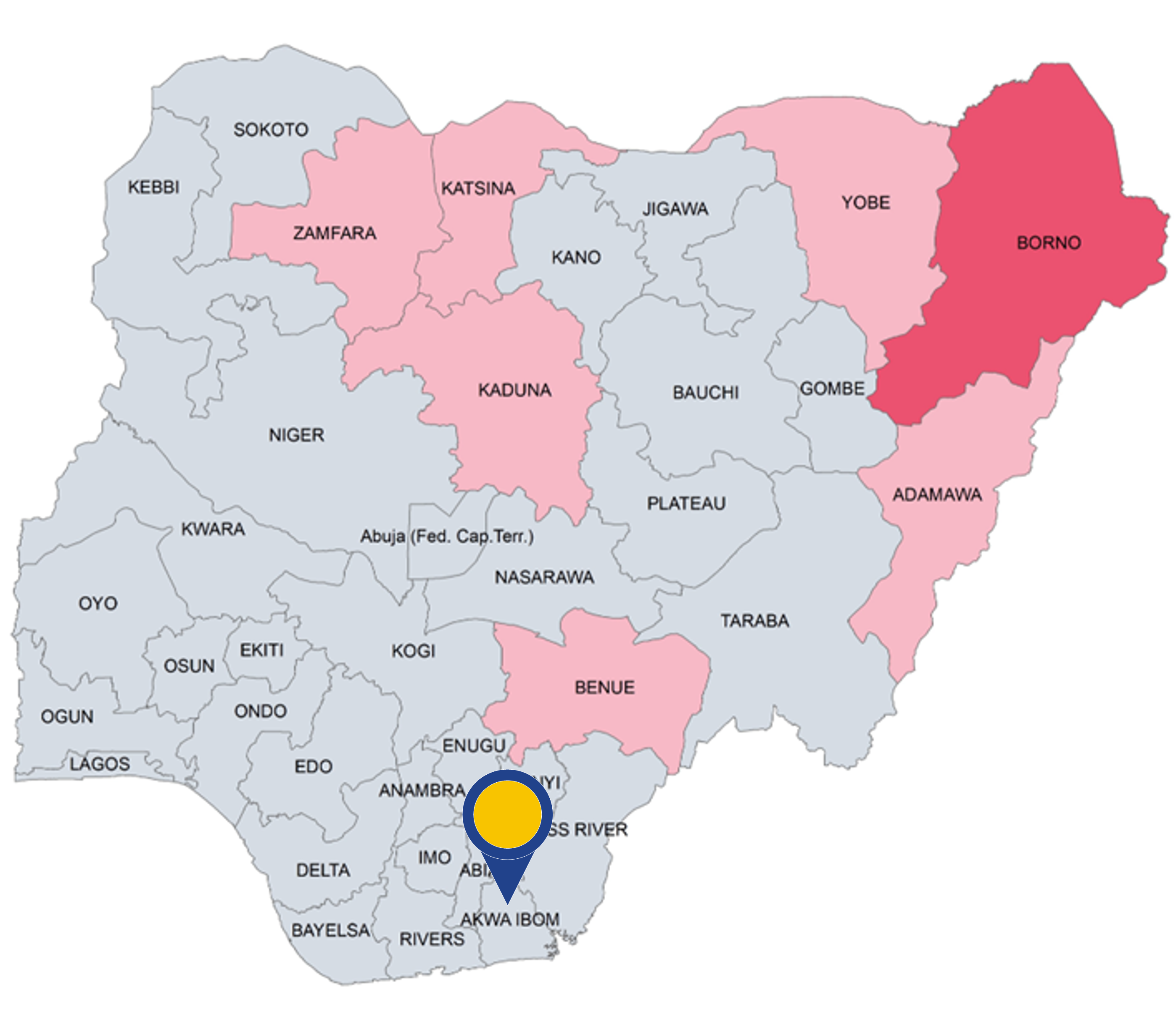Akwa Ibom state is composed of 31 LGAs and its capital is Uyo city. The state’s estimated population was 5 482 177 in 2016.

Akwa Ibom state, as part of the Niger Delta, shares a history of economic exploitation, environmental pollution and political marginalisation which has made the Niger Delta a rather violent region. In 2020, the actors involved in violence in Akwa Ibom state were mobs, cult groups, local communal militias, Fulani militias, rioters and protesters, police and military forces of the Nigerian state. IPOB and ESN activities have also been reported in the area. The Akwa Ibom state government decided to reactivate the joint security task force and increase police controls.
In 2020, incidents of mob violence and cult clashes led to deaths and mutilations, including of civilians. Cult violence has also led to residents fleeing their houses for their safety. Criminality (e.g. robberies, looting) and violence against protesters were also reported in Akwa Ibom state. In March 2021, IPOB members clashed with Nigerian security forces killing three security officers. As a response, the Nigerian military conducted airstrikes at an ESN camp at the Iko Akpan forest.
During 2020, ACLED reported a total of 14 security incidents (2 battles, 5 cases of violence against civilians, 7 incidents of riots) in Akwa Ibom state (average of 0.3 security incident per week). Security incidents took place in 5 out of 31 LGAs, with the largest overall number (7) being recorded in the LGA of Uyo.
The abovementioned security incidents resulted in 9 deaths. Compared to the estimated population in the state, this represents less than 1 fatality per 100 000 inhabitants.
From 1 January to 30 April 2021, ACLED reported a total of 6 security incidents (5 battles, 1 incident of remote violence/explosions,) in Akwa-Ibom state (average of 0.4 security incident per week). These security incidents resulted in 15 deaths.
Information on the number of conflict-related IDPs and on the number of returnees in Akwa Ibom state could not be found.
|
|
Looking at the indicators, it can be concluded that in the state of Akwa Ibom there is, in general, no real risk for a civilian to be personally affected within the meaning of Article 15(c) QD.
|

